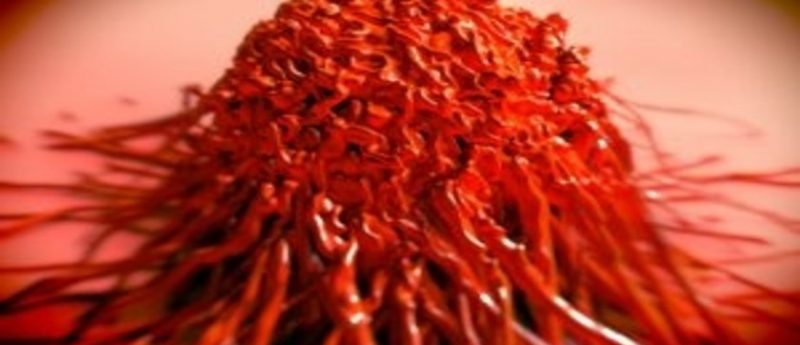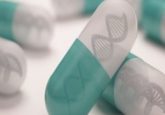Tumors may resist treatment by ‘stealing’ blood vessels

Researchers from The Institute of Cancer Research (ICR; London, UK) and Sunnybrook Research Institute, University of Toronto (Toronto, Canada) have demonstrated that liver cancer in mice may become resistant to treatments targeting angiogenesis over time by ‘stealing’ blood vessels from surrounding tissue in a process termed vessel co-option.
Cancers must grow new blood vessels in order to survive and several current antiangiogenic drugs target this weakness, though some cancers can become resistant to these treatments over time. This study, published recently in the Journal of the National Cancer Institute, explored this resistance.
The researchers investigated the development and treatment of hepatocellular carcinoma (HCC) in mice. They observed that HCC can become selectively resistant to the antiangiogenic drug sorafenib.
The team demonstrated that the tumors that responded to treatment more commonly grew their own blood vessels, whereas those that developed resistance were able to actively adopt existing vessels from surrounding liver tissue.
Interestingly, the researchers were also able to demonstrate that vessel co-option is reversible: when treatment was halted, the tumors switched back to employing angiogenesis. This provides an insight into why some patients can respond successfully to a second round of antiangiogenic therapy following a break in treatment, having not responded to the same drug on the first round.
There are, at present, no anticancer drugs that target vessel co-option. The research team also investigated the mechanism of vessel co-option, demonstrating that cancer cells increase mobility when undergoing this process, suggesting that cell mobility may be a viable target for future treatments.
The researchers, led by Andrew Reynolds (ICR), hope that these findings may lead to the development of new therapies that target vessel co-option, highlighting that they could be particularly effective when combined with existing therapies that block new blood vessel growth.
Reynolds commented: “Our study is the first to show that cancers can adapt to treatment by actively co-opting blood vessels from nearby tissues as a mechanism of drug resistance.“
“Although the current study was focused on liver cancer in mice, we are also currently investigating whether our results are relevant for patients affected by breast and bowel cancer. Our research also emphasizes the importance of further studies to better understand the process of vessel co-option, which seems to play an important role in tumor growth but has been relatively understudied.”
Sources: Kuczynski E, Yin M, Bar-Zion A et al. Co-option of liver vessels and not sprouting angiogenesis drives acquired sorafenib resistance in hepatocellular carcinoma. J Natl Cancer Inst. DOI: 10.1093/jnci/djw030 (2016); The Institute of Cancer Research press release




